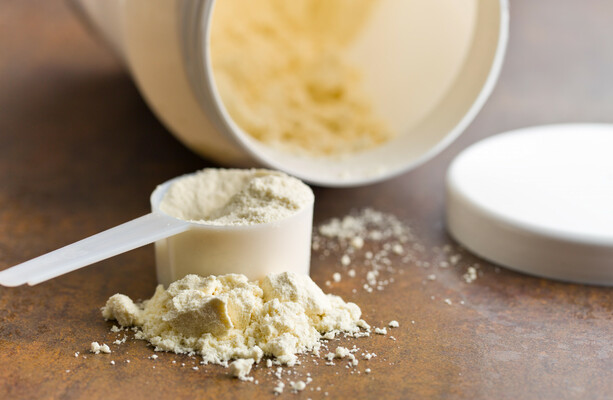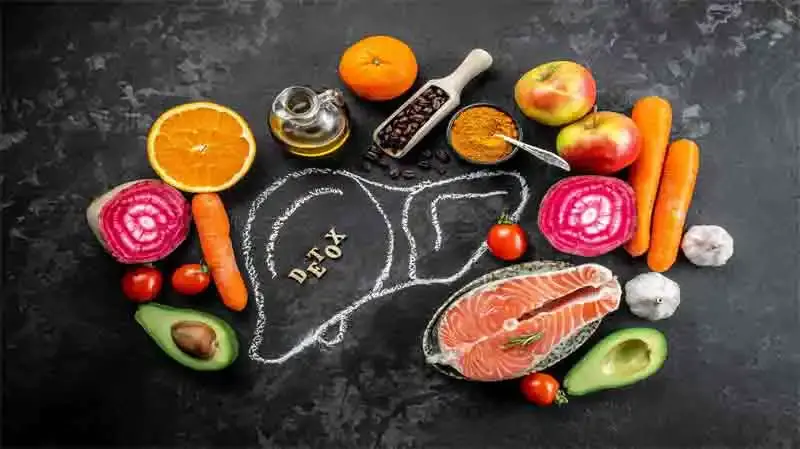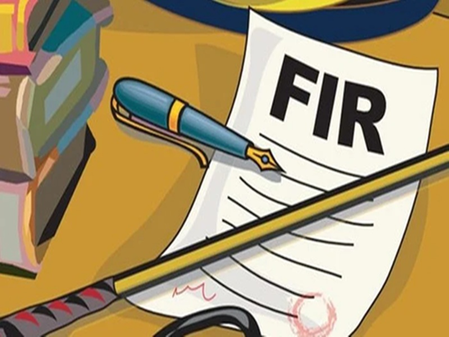Copyright thejournal

We need your help now Support from readers like you keeps The Journal open. You are visiting us because we have something you value. Independent, unbiased news that tells the truth. Advertising revenue goes some way to support our mission, but this year it has not been enough. If you've seen value in our reporting, please contribute what you can, so we can continue to produce accurate and meaningful journalism. For everyone who needs it. One-off amount I already contribute Sign in. It’s quick, free and it’s up to you. An account is an optional way to support the work we do. Find out more. Investigates Investigates Money Diaries The Journal TV Climate Crisis Cost of Living Road Safety Newsletters Temperature Check Inside the Newsroom The Journal Investigates Daft.ie Property Allianz Home The 42 Sport TG4 Entertainment The Explainer A deep dive into one big news story Sport meets news, current affairs, society & pop culture have your say Or create a free account to join the discussion Advertisement More Stories File photo of protein powder.Alamy Stock Photo What does the science say about the modern obsession with protein? We’re constantly hearing influencers talk about how to eat more protein- but emerging evidence suggests that at a certain point, more protein just means more waste, writes Dr Catherine Conlon. 7.01am, 3 Nov 2025 Share options IF FEELS AS if everywhere you turn you are told to eat more protein. Supermarket shelves are bulging with protein-boosted versions of almost everything, with social media influencers extolling the ability of protein to help in almost every facet of your life – to live longer, suppress hunger, boost metabolism and of course maintain a healthy weight. But the exalted status of protein is not new. By the early 20th century, men were urged to eat more meat if they wanted to be fit and strong – both on the battlefield and in the workplace. In the 1980s, five-time Mr Universe winner Arnold Schwarznegger wrote in Arnold: The Education of a Bodybuilder that: “The secret of rapid weight gain is a high protein, high-calorie diet.” By the 1990s, Friends star Jennifer Aniston extolled the high-protein Zone diet, which claimed that more calories from protein led to weight loss. Now in 2025, Kevin Hall in Food Intelligence suggests that the modern obsession with protein is an indicator of the extent to which many of us don’t understand its function – why we eat it, how best to get it and how our bodies use it. How protein actually works After a meal, proteins get broken down during digestion into their twenty different amino acids. The amino acids are absorbed into the blood and taken up by our cells, where they are recombined, in myriad ways, to form the tens of thousands of proteins that make our skin, bone, hair, heart, eyeballs, fingernails, and yes, our muscles. To keep all the body’s proteins in peak condition, they constantly undergo repair and maintenance – a process known as “protein turnover”. Hall outlines how the total protein turnover every day is typically several times the amount of protein we eat. Protein turnover is part of the process of metabolism. As well as powering us and warming us, metabolism fuels the building and rebuilding of proteins that make the body. So, in order to achieve all these functions, how much protein does the body need? Hall describes how, unlike carbohydrates and fats, we don’t have a dedicated system of storage for excess protein. Amino acids that we eat that are not used immediately are lost. Nitrogen gets stripped off to form ammonia that is converted to urea and dispatched in urine. Researcher at McMaster University in Canada Professor Stuart Philips succinctly sums up the reality. “You can eat a ton of protein. You can digest a ton of protein. But the key question is: How much can you use? And we don’t have a way of stocking away extra amino acids.” This means that chasing down a high protein meal with protein shakes won’t help you build protein stores, nor will it help you build more muscles. Phillips suggests that exercise is more effective than protein supplements for muscle building. Having investigated the effects of protein supplements on muscle growth across studies, he found that supplements had very little impact; it was resistance exercise that made the difference. What about the type of protein you eat? Your body cannot make all the amino acids it needs on its own, so you need to get the ones it cannot make – known as essential amino acids – through your diet. Protein rich foods include meat, fish, dairy, eggs, nuts, beans, peas, lentils. Eating a varied diet of all these foods will provide you with all your essential amino acid needs. Other plant sources of protein lack some essential amino acids, which is why animal protein is sometimes thought of a “complete” protein. However, eating a variety of plant protein each day will give you all the essential amino acids you need. Advertisement How much protein do you need? The amount of protein you need varies based on your age, weight, and activity levels. Irish dietary guidelines recommend 0.8 to 1.0g / kg/ day. For a 70kg person, this would be about 56 to 70 grams per day. Spreading protein across meals helps your body use it more effectively For example to eat around 61g of protein through the day you could have: wholegrain cereal with milk for breakfast, beans on toast for lunch and a medium chicken breast for dinner. Most Irish people eat enough protein, but elderly people and those who live in residential facilities and hospitals are at the greatest risk of not eating enough protein. In Age Proof, Head of the Academic Department of Medical Gerontology at Trinity College Dublin, Prof Rose Ann Kenny outlines how, given that protein production is impaired in ageing and proteins are key to muscle strength, protein supplements should be used to complement resistance exercise programmes. The most appropriate are supplements that target protein synthesis and thereby muscle metabolism and muscle strength, such as whey protein. However, Hall suggests that the focus on how much protein to eat overlooks “a fundamental piece of our biology”. “We may have an innate ability to control our food intake in order to control our food intake, a phenomenon called “protein leverage.” Over decades, scientists have looked at a whole variety of animals – locust, fruit flies, elephants, moose and humans have demonstrated the capacity to control food intake to ensure they eat enough protein – but not too much. He outlines that what people eat all around the world is a diet that contains about 15 per cent of calories as protein; he questions whether the ability to limit our protein intake to a specific amount may be for health reasons. “We don’t really know, but there’s emerging evidence that above a certain level, protein is no longer helpful – and can be harmful. “Some research suggests that lower animal protein intake is linked to reduced mortality and disease risks, and that people who derive most of their protein from plants as opposed to animal sources have better health. This may be due to differences in overall dietary patterns, including increased dietary fibre, which is absent in animal sources rather than the protein type per se.” Hall suggests that it’s possible that future dietary advice may be just the opposite of what social influencers of today are trying to convince us. That future advice would be that less protein is more. After all that, when it comes to protein what is the bottom line? Hall concludes by saying that our protein needs shift over time, but our bodies seem to be able to adapt to different levels of protein intake and have in-built methods of protein seeking machinery to guide our appetite. Getting enough protein is something that most people don’t need to worry about (unless you are in a high risk group or your doctor says otherwise). It seems that, that at a certain point, more protein just means more waste. And while lots of people are trying to convince us that we need more protein (and making a lot of money in the process), the latest evidence suggests that mega doses may not be great for your health. Remember that the next time you walk into a supermarket or a supplement shop. Dr Catherine Conlon is a public health doctor and former director of human health and nutrition at Safefood. Readers like you are keeping these stories free for everyone... A mix of advertising and supporting contributions helps keep paywalls away from valuable information like this article. Over 5,000 readers like you have already stepped up and support us with a monthly payment or a once-off donation. Support The Journal Dr Catherine Conlon Send Tip or Correction Embed this post To embed this post, copy the code below on your site Email “Doctor: What does the science say about the modern obsession with protein?”. Recipient's Email Feedback on “Doctor: What does the science say about the modern obsession with protein?”. Your Feedback Your Email (optional) Report a Comment Please select the reason for reporting this comment. Please give full details of the problem with the comment... Healthy Eating News in 60 seconds Sister Stanislaus Kennedy, founder of Focus Ireland, has died aged 86 19 mins ago Monaghan football legend Eugene 'Nudie' Hughes dies aged 67 11 mins ago Drogheda Ipas arson Irish Refugee Council calls Tánaiste's remarks 'careless' as it warns of immigration tensions 50 mins ago Two arrested after scissor lift stolen in Cork city overnight Peterborough Man (32) charged with ten counts of attempted murder after knife attack on UK train Trump says he feels 'badly' for UK royal family over Andrew-Epstein saga Good Morning The 9 at 9: Monday Cambridgeshire Only one man now a suspect in train stabbing in England as police rule out terrorism Rain warning issued for four counties this evening Path to Power Newstalk conducting review of Ivan Yates's work at the station after Fianna Fáil revelation Tyrrelstown Man arrested in probe into death of man who presented at hospital with serious injuries more from us Investigates Money Diaries The Journal TV Journal Media Advertise With Us About FactCheck Our Network FactCheck Knowledge Bank Terms & Legal Notices Terms of Use Cookies & Privacy Advertising Competition more from us TV Listings GAA Fixtures The Video Review Journal Media Advertise With Us Our Network The Journal FactCheck Knowledge Bank Terms & Legal Notices Terms of Use Cookies & Privacy Advertising Competition © 2025 Journal Media Ltd Terms of Use Cookies & Privacy Advertising Competition Switch to Desktop Switch to Mobile The Journal supports the work of the Press Council of Ireland and the Office of the Press Ombudsman, and our staff operate within the Code of Practice. You can obtain a copy of the Code, or contact the Council, at https://www.presscouncil.ie, PH: (01) 6489130, Lo-Call 1800 208 080 or email: mailto:info@presscouncil.ie Report an error, omission or problem: Your Email (optional) Create Email Alert Create an email alert based on the current article Email Address One email every morning As soon as new articles come online



